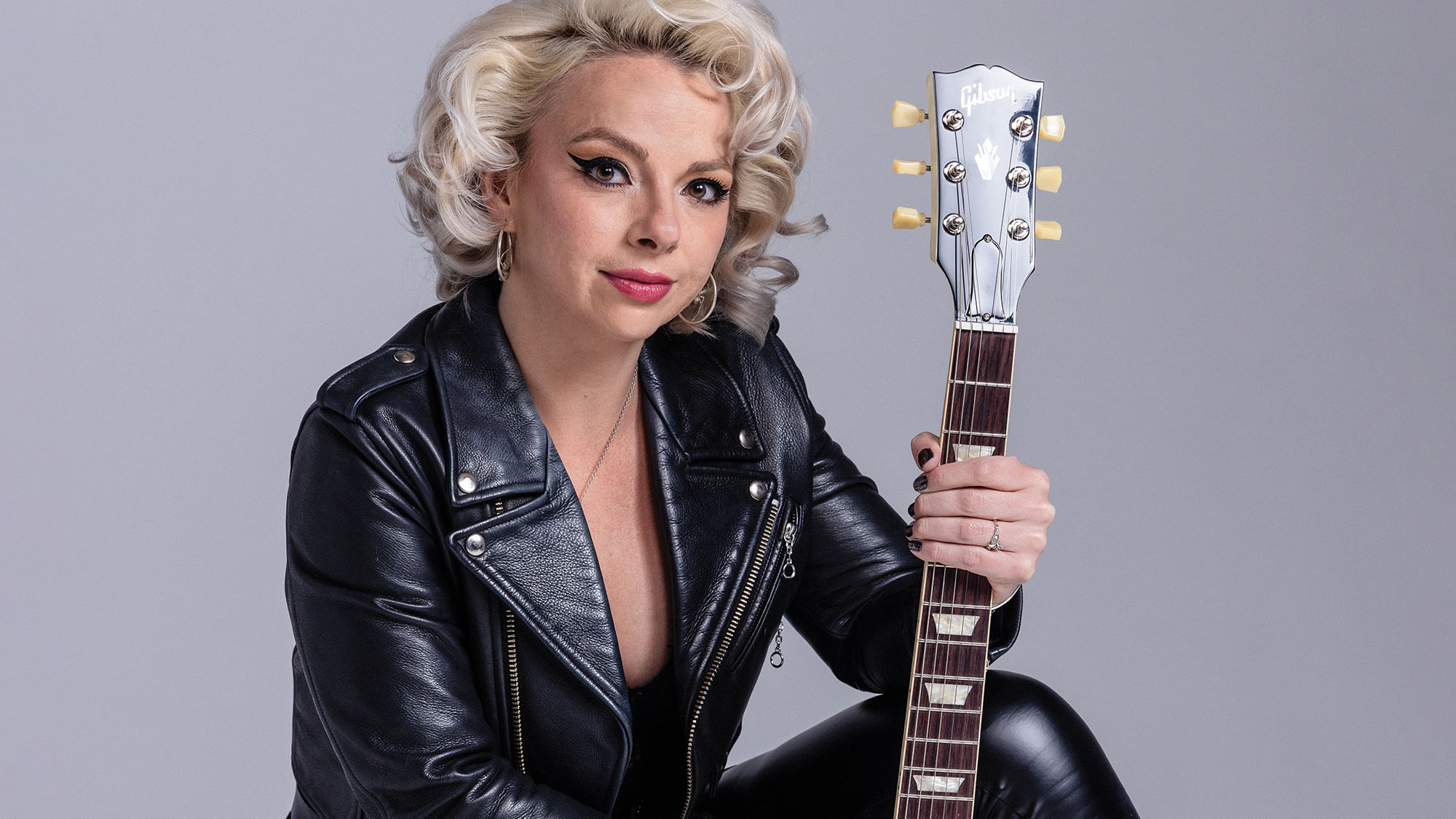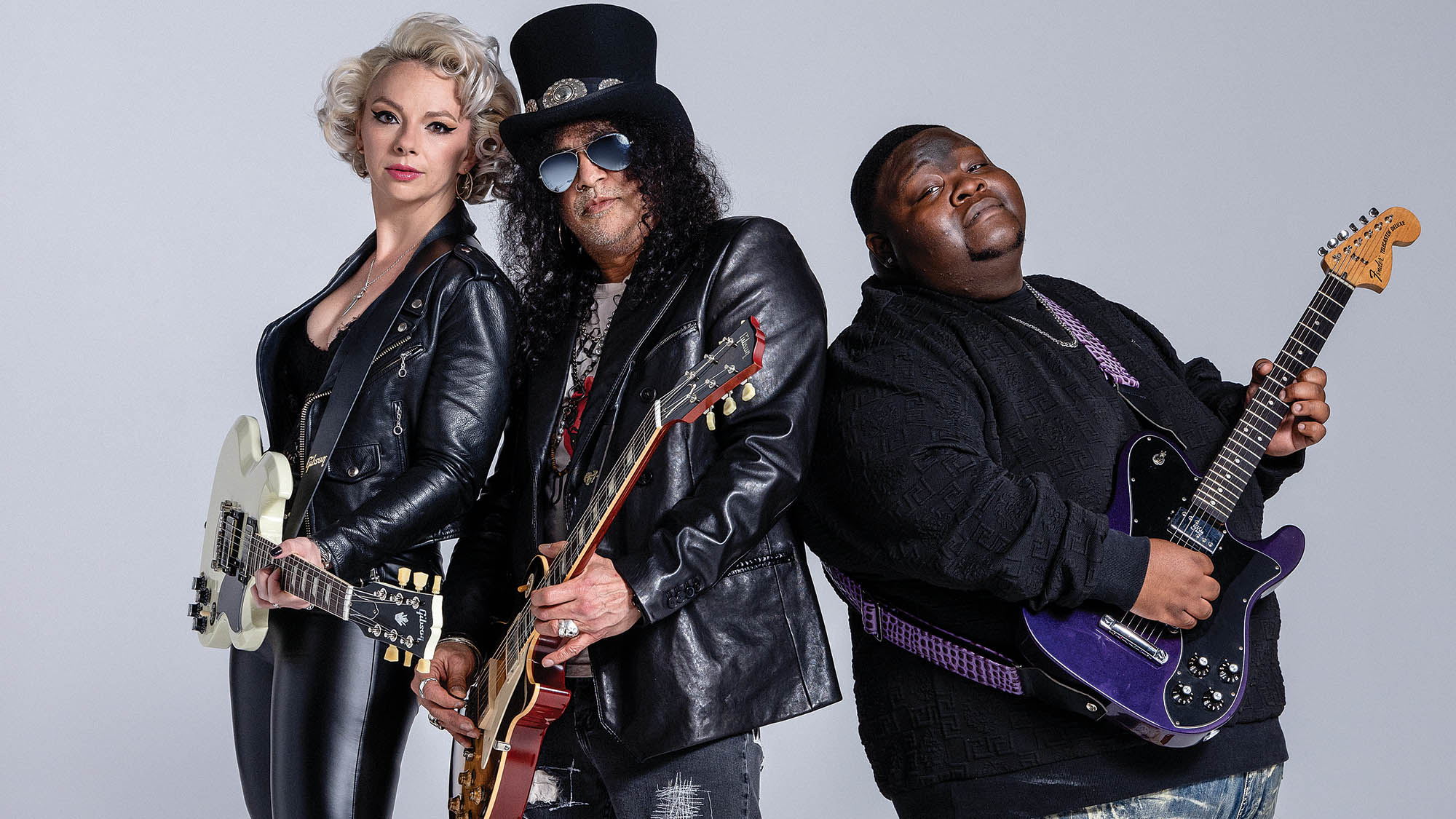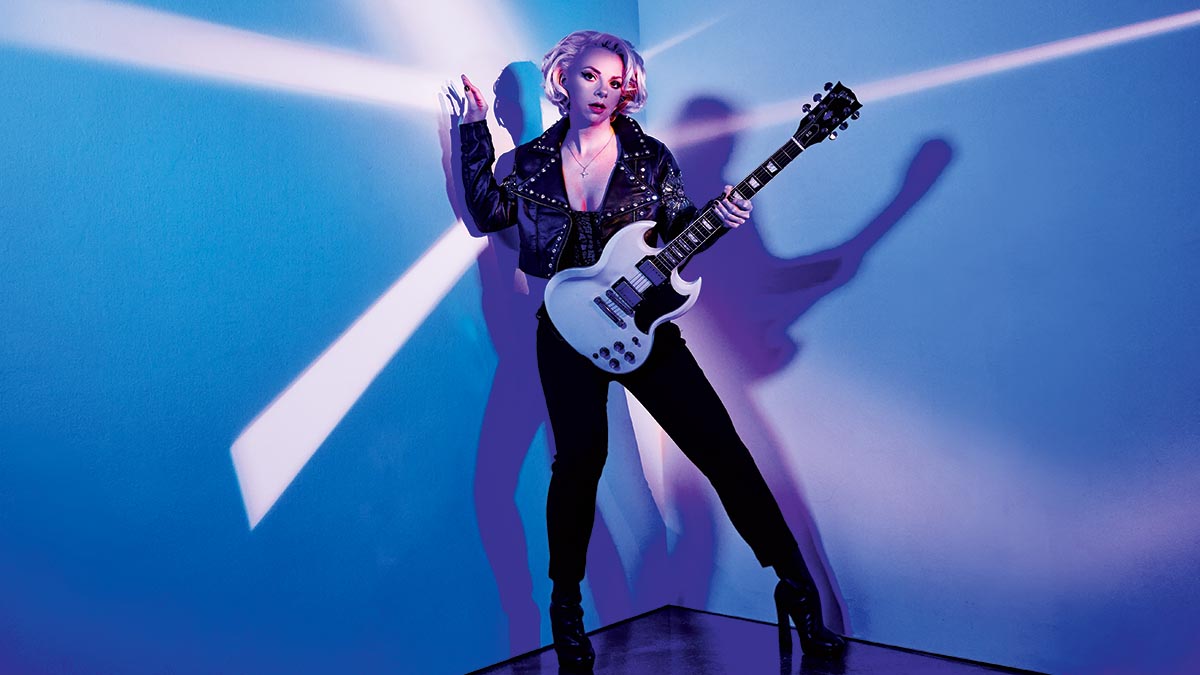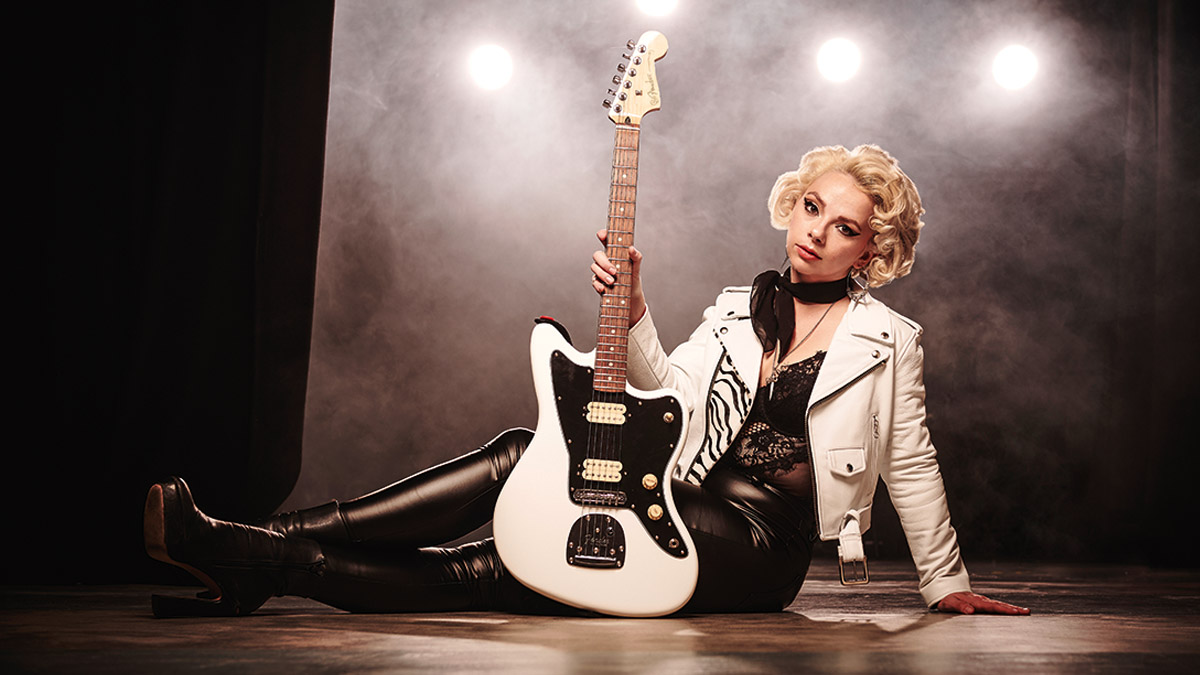
Samantha Fish first came to mainstream attention as part of a trio of artists on the 2011 Girls with Guitars record, but over the past decade or so she has proven to be a more singular – and much less easy to pigeonhole – talent.
Over the course of seven studio albums, first for German indie label Ruf and more recently for blues and roots powerhouse Rounder, Fish has carved out a style that marries high-octane blues with raucous rock ’n’ roll, pop, country, punk, hip-hop and other sounds.
Binding it all together are her commanding vocals and tasty, melodic guitar work, attributes that have over the years garnered a sizable audience that counts Slash amongst its members.
“Samantha reminds me a little bit of Bonnie Raitt in some ways,” Slash says of his S.E.R.P.E.N.T. Festival mate. “She’s got this cool swagger and incredible blues tone and style. She’s a real natural, and somebody that sort of surprised me when I first heard her play. I was like, ‘Wow, this is great!’”
Regarding her penchant for mixing the blues with other styles, Fish sees it as a part of a long tradition. “A lot of my heroes are rock ’n’ roll people who learned from the blues and then reinterpreted it,” she says.
“And I think that’s the challenge – ‘What can I say with the blues?’ It’s also part of the fun of being an artist – you get to play around and mix up these different things that inspire you, and not restrict yourself too much. I always want to make sure I stay true to who I am, but every record has its own shape, its own style, its own concept and feel.”
The point, she continues, is to find your own voice, not ape ones from the past.
“I’m never going to sound better than Muddy Waters sounded doing his style,” she says. “Because it’s perfect the way he did it. So the only thing I can really do as an artist is find my own sound and try to perfect that. I think that’s our job as artists. And nowadays the world has opened up so much in terms of genre – there’s a lot of saturation and mixing together of different styles, which I think is great.”
She laughs. “I mean, they’re having a hell of a time down at the record store trying to figure out where things go, you know?”
When I was a teenager, I almost lost my driver’s license because I got so many speeding tickets driving around listening to Appetite for Destruction
How did you get involved in the S.E.R.P.E.N.T. Festival?
“I’d been hearing whispers about Slash doing a blues-oriented record, and then I think I first heard about the tour from my management. And I was like, ‘Yeah, I’ll get to go do stuff with Slash, sure…’ You know, very skeptical. [Laughs] But then it actually came through and I thought, it’s a cool concept, and such a cool lineup. All the acts are really incredible performers and it’s a really great thing to get to be a part of. I was stoked.”
Did you have any previous relationship with Slash?
“No. I had never met him prior to the photoshoot we did for this story. But I’m a huge fan. I actually told him this story at the shoot: when I was a teenager, I almost lost my driver’s license because I got so many speeding tickets driving around listening to Appetite for Destruction. I just love that record.”
Were you a big rock fan as a kid?
“I listened to a lot of classic rock, because I was into guitar. And in the late ’90s, early 2000s, the stations that played guitar solos were the rock stations. Maybe country, too. But I became a fan because all those songs were just so great and exciting and fun to listen to. And Slash, he’s an amazing guitar player. I definitely tried to figure out how to play like Slash at one point in time or another.”
What led you to the blues?
“I’ve always been the person who likes to ‘find out,’ you know? I like to study people and find out what they were into. So I was into Keith Richards…. Well, what did Keith Richards listen to? And that’s kind of how I discovered blues music for myself – by going backwards and finding out the blues is really the common thread for everybody and everything.
“It’s the root of all modern music. Also, growing up in Kansas City really helped shape and define me, because Kansas City has such a deep tradition of jazz and blues. So it was just something where I kept getting pulled in that direction.”

Was there any particular strain of the blues that you were drawn to?
“I got really into the North Mississippi, Fat Possum kind of thing. Because I felt that sort of married this raw rock ’n’ roll edge to a blues groove. And it was very drums-oriented. But there’s so many things that pulled me into it. And then I just worked on finding my voice within the music.”
What did you love about the blues as a guitar player?
“The first thing that hit me was having the ability to emote within an open format. I would go to these blues jams around Kansas City, and just being able to improvise in a form and express yourself openly with the instrument was something I thought was really cool. It wasn’t just about learning this riff and that solo as it’s set; it was about finding your own voice and really expressing yourself. When I got to perform it and I started finding my voice in it, it just felt natural.”

Over the years you’ve developed your sound from a more traditional blues approach to something that incorporates elements of so many other styles. This was particularly evident on your most recent solo effort, Faster, which even featured a collaboration with Tech N9ne.
“Well, the Faster record, I was working with a producer named Martin Kierszenbaum. He produced one of my all-time favorite pop records, The Fame by Lady Gaga, along with a bunch of other really incredible pop productions. So it was an opportunity for me to stretch in that direction.
“I’d always written melodic hooks, and I’ve tried to bring some pop sensibilities to my songs, so it was a case of expressing myself even further into that world. But I still wanted to keep where I come from in the music and try to marry the styles together.”
More recently you took another stylistic left turn with Death Wish Blues, a collaborative record with outlaw country great Jesse Dayton that was produced by Jon Spencer.
“With Jesse, our North Star was, ‘We want to go to New York and make a really dingy rock ’n’ roll record and figure out how to bring some punk elements to the blues.’ I think Jon Spencer was the perfect person to bring in, because one of my favorite records is R.L. Burnside’s A Ass Pocket of Whiskey, and Jon Spencer’s Blues Explosion was the backing band on that.
“I feel like that album potentially opened the door for bands like the Black Keys and the White Stripes – that North Mississippi-inspired indie rock thing. And I think we came up with something really cool. It was different from what any of us expected it to be, but it’s a really special album.”
Do you ever feel there’s a tightrope you have to walk between being reverent for blues tradition while also trying to carve out your own distinct sound?
“Even when Muddy Waters and Howlin’ Wolf went electric, which is what we consider to be traditional blues now, they were outsiders, right? People were saying, ‘This isn’t blues.’ And now it’s our gold standard. So I just feel like it’s the artist’s job to push boundaries and find their voice.
“And, of course, you worry about losing people. You worry about gaining people. That’s the business side of what we do. But at the end of the day, I feel like you have to make art that you can stand by and that you feel strongly about. The rest of it, it kind of sorts itself out.”
What are five blues songs that you would say every guitar fan should hear?
“Well, B.B. King is obviously one of the best blues guitar players. And his song Hummingbird is great – it takes a surprising turn, it’s very dramatic, and his playing is just so perfect. So that’s one. Then I’d say, Going Down by Freddie King. I love Freddie King, and Going Down is a great song for people who are really into rock, because a lot of rock bands have reinterpreted it. And his guitar playing is just so searing on it.
“R.L. Burnside, I just talked about him for a few minutes, but anything off of A Ass Pocket of Whiskey. It’s so rough and raw. Maybe check out his version of Shake ’Em on Down. I’d also suggest Junior Kimbrough’s Nobody But You. It’s a sexy song, which I think is a through-line with rock ’n’ roll and blues.
“It’s sexy music, you know? It makes you wanna dance. Finally, I’ll go contemporary and pick something from Derek Trucks, who is just a phenomenal player, especially his slide stuff. I’ll say Learn How to Love, from Tedeschi Trucks Band, which has some great, great guitar on it.”

What is your primary electric guitar-and-amp setup for the S.E.R.P.E.N.T. Festival?
“Depends on how long we’re playing; I like to switch around. [Laughs] But my main guitar is a Gibson SG. I just find it’s really versatile, and it’s something that I feel very comfortable playing. I’ve got these custom amps from Category Five, a boutique amp company from Texas.
“They’re really simple point-to-point wired tube amps, and they sound like behemoths. That’s going to be my main setup. Then I might mix in a [Gibson] Firebird or a [Fender] Jaguar here and there, and I have a cigar box guitar, which people usually find to be kind of cool.”
What do you think a tour like this says about the state of blues in 2024?
“It’s a good opportunity to showcase how diverse the blues can be. All these artists are so different from one another and are being true to themselves artistically and pushing the genre forward in their own right.
“Also, you’re gonna get a dose of really passionate performances, and I feel that’s something that connects people. It’s the reason all of us probably got drawn into this music in the first place.
“I just feel that’s what the blues does – it connects us to our hearts, and it connects us to each other. So it’s exciting to me to see the music being put out on a broad stage like this, where it can bring people together in a beautiful way.”
- The inaugural S.E.R.P.E.N.T. Festival is under way – see here for dates and ticket details.







